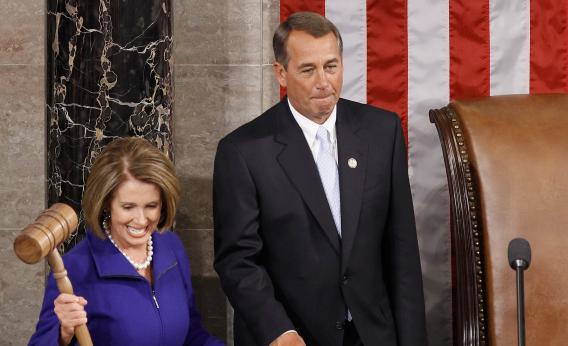Nancy Pelosi just floated an idea that, if it’s feasible, could make a big difference in fiscal cliff negotiations. The use of something called a “discharge petition” to pass standalone middle class tax cuts.
As I’ve noted before, in the modern-day House of Representatives you can’t pass a bill where all the Democrats team up with a handful of Republicans to add up to 218. There’s a party cartel dynamic at work where only bills the Republican caucus approves of can reach the floor. The way around that is a procedural move called a discharge petition. You run around signing up members to the petition, and if enough members sign the Speaker basicaly has to bring the bill to the floor regardless.
These petitions rarely work since signing a minority party petition would be considered a major breach of party discipline. But now again their use or threatened use helps break a logjam or two. Most recently I believe a discharge petition drive was integral to bringing the McCain-Feingold legislation to the floor in the early days of the Bush administration. Boehner’s gained a lot of leverage in various negotiations with Obama on the basis of arguing that he needs a deal he can sell to the conservative members in his caucus. Putting a discharge petition in motion alters that dynamic, by forcing Boehner to also prevent defections from his left.
